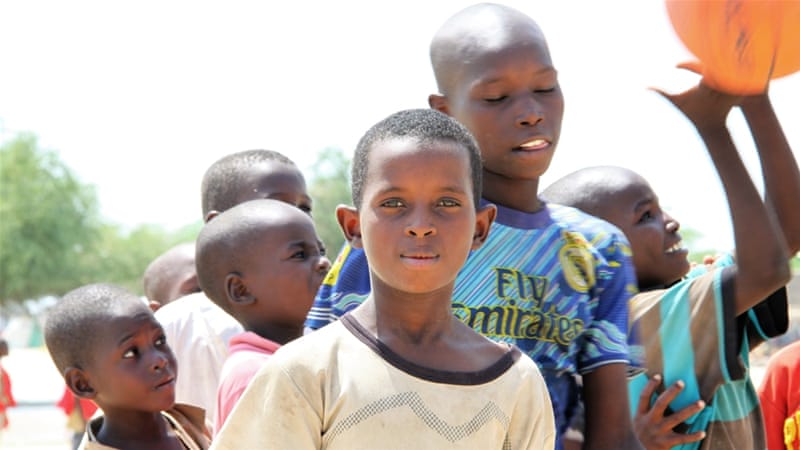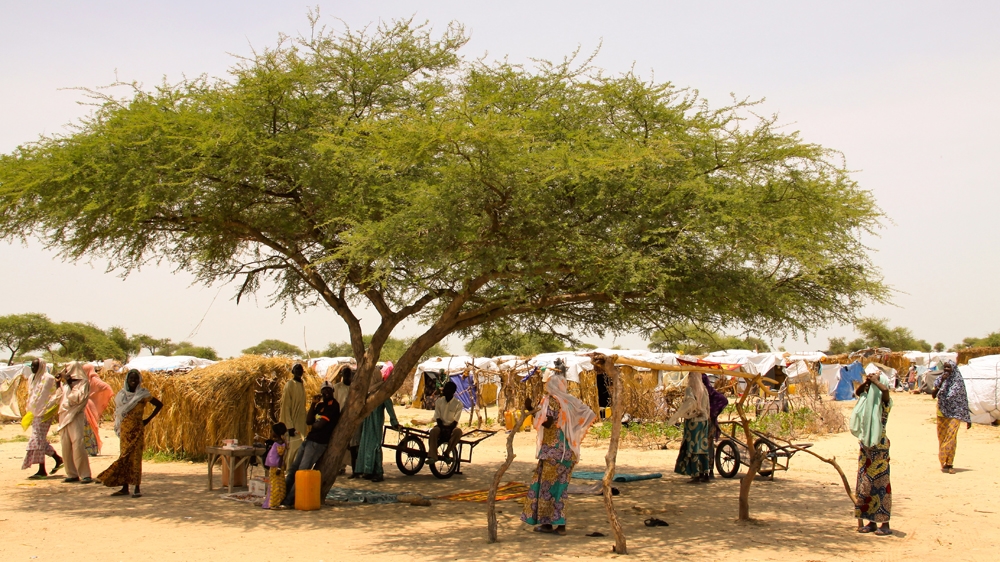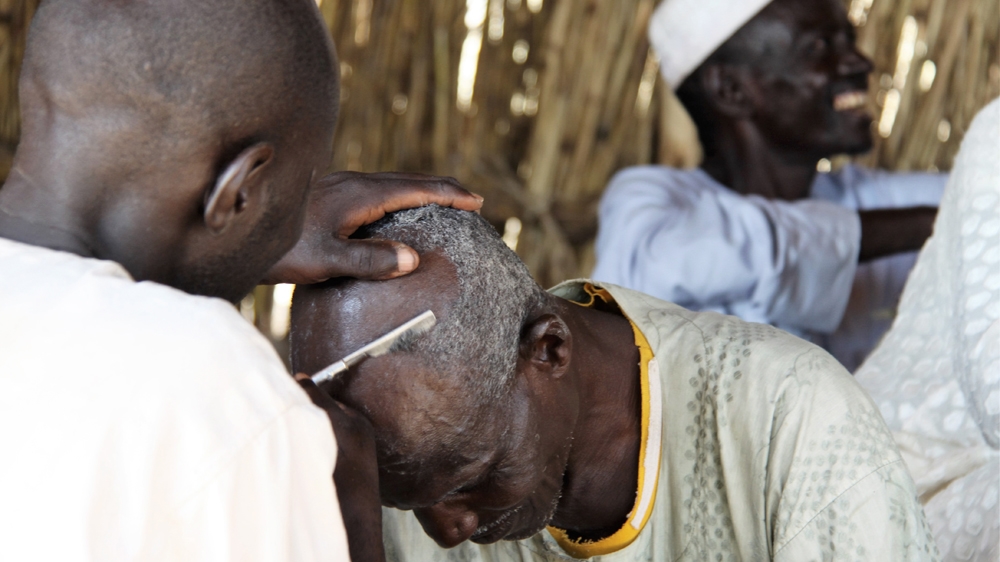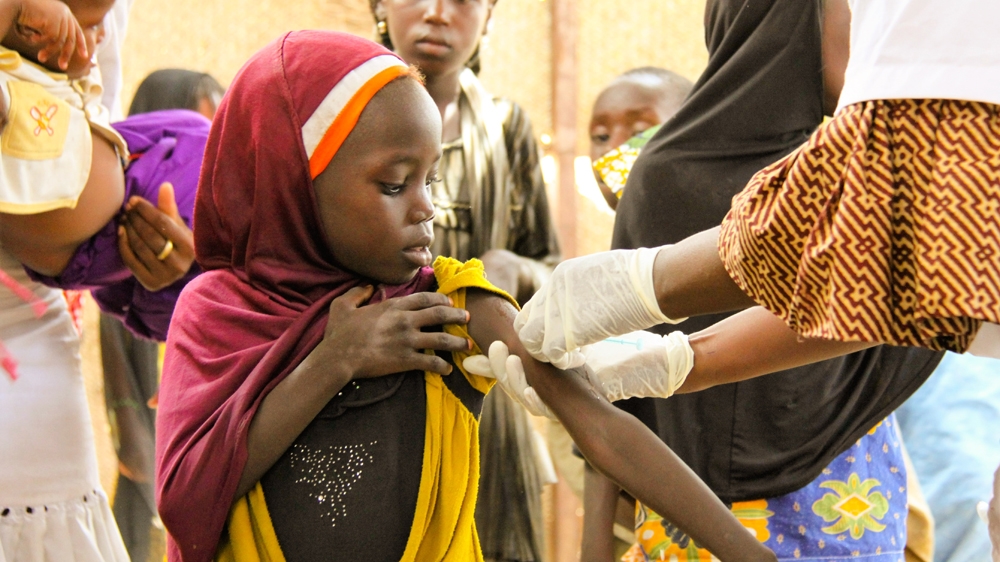Diffa, Niger - As Nigerian forces have progressed against Boko Haram, the cornered terror group has been carrying out more attacks in neighbouring countries. In Niger's Diffa region on the northeastern border of Nigeria, more than 280,000 people have been
displaced.
Most of the displaced, do not live in refugee camps, but in ramshackle settlements next to a national highway. The situation continues to deteriorate and new families arrive on a daily basis, fleeing violence and hunger in the Lake Chad Basin. Humanitarian aid organisations struggle to reach everyone in need of assistance.
Only a few years ago, Diffa was mainly known as a trade region. Bordering Lake Chad and blessed with a relative fertile ground in this semi-desert environment. Fish and agricultural products such as millet, pepper and maize were widely available at local markets.
Since February 2015 however, the deadly Boko Haram
incursions have drastically changed the lives of local residents.
The strict curfew, closing of markets and the suspension of trade has led to an economic downturn, resulting in a humanitarian crisis.
According to the United Nations, the people of Diffa are arguably the
poorest on earth, living in the least developed region in the least developed country of the world. Meanwhile, one refugee for every four residents has arrived in their communities as a result of the conflict.
Perilous life along the road
Driving on the national highway towards Diffa town, beside the perilous border with Nigeria, dozens of makeshift camps appear along the tarmac road. The apparent safe haven for refugees is relative. Scores of suicide bombings by Boko Haram infiltrators on this route have left people on edge.
But, as most of the displaced are farmers and herders who remain strongly attached to their soil, they feel that moving further away from the volatile border area, towards existing refugee camps about 50 kilometres up north, is out of the question.
Many of them still return to visit their farmlands even in high-risk areas, because with the absence of ownership registration, they fear others might seize their property if it is not maintained.
"Next to this road we have direct access to information, food and services. We all believe that eventually we will be able to return safely, and moving away from our land would mean losing it," explains Amadou, a Nigerien herder.
Some of the displaced received basic tents from humanitarian actors, but the vast majority built improvised shacks with whatever materials they could find: straw, tarpaulins or wooden twigs. Some of the recent arrivals still live in the open.
Village chief Andre laments the shortage in resources in Assaga settlement. "We are not able to produce our own supplies, and what we receive from food distribution is barely enough: only 12kg of cereal per family per month. Many live on one meal a day."
Hawa, a young mother of five children, says she is struggling every morning to find enough food for her family. "There is some foodstuff at local markets, but we have no money to buy it. I'm no longer able to produce milk to breastfeed my infant due to lack of nourishment."
Of the 20 million people living in the Lake Chad Basin, a region stretched over Nigeria, Niger, Chad and Cameroun, at least 9.2 million are in urgent need of life-saving assistance and more than five million people are severely food insecure [PDF]. At least four million people have no access to aid, say humanitarian organisations.
According to UNICEF, an estimated 475,000 children across Lake Chad will suffer from severe acute malnutrition this year. In the northeast of Nigeria, where Boko Haram has been seeking to carve out a hardline Islamist state since 2009, the military confirmed that three to four people a day are dying due to malnutrition. However, humanitarian organisations say this figure is probably much higher as many areas remain unreachable.
Lives in limbo
Attacks in Niger are usually directed towards military targets, but often they are accompanied by plundering of food supplies.
In June 2016, one of the deadliest assaults was carried out in Bosso town. Thirty-two soldiers were killed, while around 70,000 people were displaced. Many of the residents had already been evacuated a year earlier from islands on Lake Chad.
Ibrahim, a 45-year-old Nigerian, owned a small shop in Bosso. As he prepared for morning prayers one day, explosions and screaming reverberated through the village. He managed to escape with his two wives and nine children, after which they had to walk four days to find aid.
"We arrived with nothing. Not even a piece of soap. All we can do now is wait. Hope for safety to return so we can head back to our village and lands," Ibrahim said.
Following the onslaught in Bosso, Chad sent troops to Niger to help the West African joint task force to wage a counterattack against Boko Haram, while the government of Niger has extended a state of emergency until October 2016.
A crisis for children
With a median age of under 15, Niger has the world's youngest
population. This is decidedly visible in the populations of refugees and displaced, about 55 percent of whom are
children.
More than 150,000 boys and girls barely have access to education because of limited schooling in the nearby villages, which are already overcrowded, and because of closures of many schools in insecure border areas, according to UNHCR.
In the makeshift encampments, children loiter around while the days pass by, making them vulnerable targets for the fighting groups. Since the start of the conflict, thousands of minors have been
recruited, often by force, and used to carry out attacks. Nearly one in five suicide bombers is a
child.
"Providing them with a perspective for the future, with education, assistance and social services, is the best way to prevent recruitment," says Viviane Van Steirteghem, country representative for UNICEF in Niger.
Shortage of funds
Along with UNICEF, 30 other aid organisations operate in the area providing relief for the displaced, but they say they are underfunded and overstretched.
Given the scale of the crisis, UNICEF has revised funding requirements to
$308m to provide life-saving assistance to families affected by Boko Haram violence across Nigeria, Niger, Chad and Cameroon. But the international donor community reacts slowly, as only 41 million, a mere 13 percent, has been received according to the UNICEF representative.
"We are witnessing a unique global situation, with an unseen number of high-scale, long-lasting conflicts. Never before were so many people forced to flee their homes. With everything that's going on, there is a lack of attention of what the people around Lake Chad have to endure," Van Steirteghem explains.
Further delay in funding for emergency operations in Niger and by extension the Lake Chad Basin will contribute to a deepening of the crisis and steeper financial requirements later on.
"Additional funding is needed to develop livelihoods for people in need, so that they can become self-reliant and once again a part of the economic development in the region," says Van Steirteghem.
This reportage was realised with the support of UNICEF, Postcode Lottery Fund and the Fund BJP.
SOURCE: Aljazeera.



















